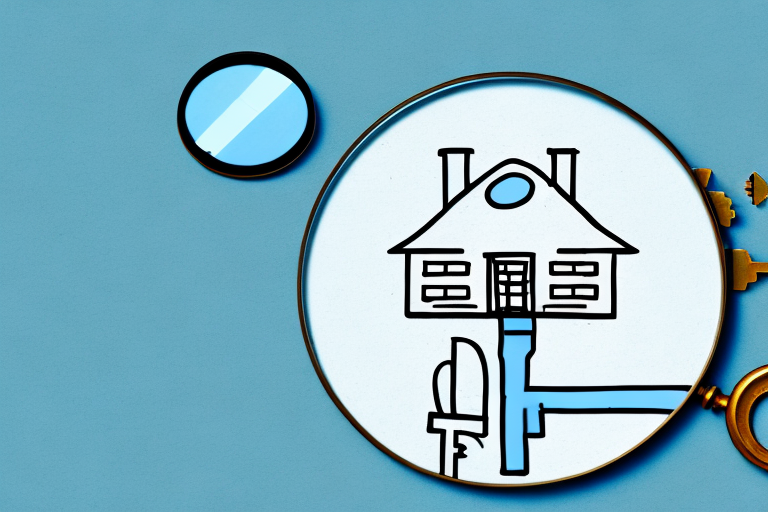In the world of real estate, the process of buying or selling a property can often seem complex and overwhelming. However, with a solid understanding of conveyancing, you can navigate these transactions with confidence. In this comprehensive guide, we will break down the key components of conveyancing, explain the role of a conveyancer, explore the conveyancing process, discuss the costs involved, and address common challenges that may arise.
Understanding the Basics of Conveyancing Sydney
Conveyancing Sydney is a complex legal process that involves the transfer of property ownership from one party to another. It encompasses a series of steps, documents, and contractual obligations that must be fulfilled to ensure a smooth and lawful transfer.
When engaging in a property transaction, it is essential to understand the importance of conveyancing Sydney. This process plays a crucial role in protecting the rights of both buyers and sellers, ensuring a fair and transparent transaction.
What is Conveyancing?
Conveyancing is a specialized area of law that deals with the transfer of property ownership. It involves the preparation, review, and execution of legal documents, as well as the fulfillment of various legal obligations.
The process typically begins with the negotiation and acceptance of an offer to purchase a property. Once the offer is accepted, the conveyancing process kicks in, ensuring that all legal requirements are met before the property can be officially transferred. You can visit https://wallerlawblog.com/future-proofing-your-legacy-the-power-of-crafting-wills-online/ for the power of crafting wills online.

During conveyancing, a conveyancer or solicitor acts as an intermediary between the buyer and seller. They are responsible for conducting searches, reviewing contracts, and ensuring that all legal obligations are fulfilled.
Importance of Conveyancing in Property Transfers
Conveyancing is of utmost importance in property transfers as it provides a legal framework that protects the rights and interests of all parties involved.
For buyers, conveyancing ensures that the property they are purchasing has a clear title, free from any encumbrances or legal issues. It involves conducting searches to uncover any potential problems, such as outstanding mortgages, liens, or disputes, that may affect the property’s ownership.
For sellers, conveyancing ensures that the property is transferred to the buyer in a lawful manner. It involves preparing and reviewing legal documents, such as the contract of sale and transfer of title, to ensure that all necessary provisions are included and that the seller’s interests are protected.
Additionally, conveyancing helps to establish a fair and transparent transaction process. It ensures that all parties are aware of their rights and obligations, and that the terms of the transaction are clearly defined and agreed upon.
By adhering to conveyancing regulations and procedures, buyers and sellers can have peace of mind knowing that their property transaction is being handled in a professional and legally compliant manner.
Overall, conveyancing is a vital aspect of property transfers, providing the necessary legal framework and protection for both buyers and sellers. It ensures that the transfer of property ownership is carried out smoothly, efficiently, and in accordance with the law.
The Role of a Conveyancer
A conveyancer plays a crucial role in the property buying and selling process. They are highly skilled professionals who specialize in property law and are responsible for managing the conveyancing process from start to finish. Whether you are buying or selling a property, a conveyancer will be your trusted guide throughout the entire transaction.
Duties and Responsibilities of a Conveyancer
One of the primary duties of a conveyancer is to review contracts. They carefully examine the terms and conditions of the contract to ensure that everything is fair and in accordance with the law. This includes checking for any hidden clauses or potential issues that may arise during the transaction.
In addition to reviewing contracts, conveyancers also conduct property searches. This involves investigating the property’s title, boundaries, and any potential legal restrictions or obligations. By conducting thorough searches, conveyancers ensure that there are no surprises or hidden problems that could affect the property’s value or your ownership rights.
Preparing legal documents is another crucial responsibility of a conveyancer. They draft and review various legal documents, such as the transfer of ownership, mortgage agreements, and any other necessary paperwork. These documents need to be accurate and legally binding to protect both the buyer and the seller.
Furthermore, conveyancers play a vital role in facilitating the transfer of funds. They ensure that all financial transactions are handled securely and efficiently. This includes coordinating with banks, mortgage lenders, and other parties involved in the transaction to ensure a smooth transfer of funds.
Choosing the Right Conveyancer for Your Needs
When it comes to selecting a conveyancer, it is essential to consider several factors. Firstly, you should look for a conveyancer who specializes in the type of property transaction you are undertaking. Whether it’s residential, commercial, or industrial property, finding a conveyancer with relevant expertise is crucial.
Experience is another crucial factor to consider. Look for conveyancers who have a proven track record of successful transactions. An experienced conveyancer will have the necessary knowledge and skills to handle any challenges that may arise during the conveyancing process.
Reputation is also important when choosing a conveyancer. Seek recommendations from friends, family, or professionals in the real estate industry. Online reviews and testimonials can also provide valuable insights into a conveyancer’s reputation and the quality of their services.
Effective communication is key to a smooth conveyancing experience. Look for a conveyancer who is responsive, proactive, and keeps you informed throughout the process. Clear and open communication ensures that you are always aware of the progress and any potential issues that may arise.
In conclusion, a conveyancer plays a vital role in property transactions. Their duties include reviewing contracts, conducting property searches, preparing legal documents, and facilitating the transfer of funds. By choosing the right conveyancer, you can ensure a smooth and successful conveyancing experience.

The Conveyancing Process Explained
Buying or selling a property can be a complex and time-consuming process. One crucial aspect of this process is conveyancing, which involves the legal transfer of property ownership from the seller to the buyer. Understanding the conveyancing process is essential for both buyers and sellers to ensure a smooth and successful transaction.
Pre-contractual Stage
The pre-contractual stage is the initial phase of the conveyancing process. During this stage, various important tasks need to be completed to lay the foundation for a successful transaction. One of the key tasks is negotiating the terms of the contract. This involves discussing and agreeing upon the purchase price, any special conditions, and the expected completion date.
In addition to negotiating the contract terms, property inspections and surveys are conducted to assess the condition of the property. These inspections help identify any potential issues or defects that may need to be addressed before proceeding with the transaction.
Another critical aspect of the pre-contractual stage is ensuring the buyer’s finances are in order. The conveyancer works closely with the buyer to verify their ability to finance the purchase. This may involve reviewing bank statements, obtaining mortgage offers, and confirming the availability of funds for the deposit and other associated costs.
Completing these tasks diligently is crucial to minimize potential issues that may arise later in the conveyancing process. It is essential to have a thorough understanding of the property’s condition and the financial capabilities of the buyer to avoid any surprises or complications down the line.
Contractual Stage
Once the pre-contractual stage is completed, the conveyancing process moves into the contractual stage. This is where the legal aspects of the transaction come into play. The key event during this stage is the exchange of contracts between the buyer and seller.
When the contracts are exchanged, both parties become legally bound to the transaction. The buyer typically pays a deposit at this stage, which is usually a percentage of the purchase price. The deposit serves as a commitment from the buyer and provides some financial security to the seller.
During the contractual stage, the conveyancer plays a crucial role in ensuring that all legal requirements are met. They review the contract thoroughly, making sure it accurately reflects the agreed-upon terms and conditions. If any amendments or negotiations are necessary, the conveyancer guides their client through the process, ensuring their best interests are protected.
Additionally, the conveyancer may conduct various searches during this stage to uncover any potential issues that may affect the property’s value or the buyer’s ability to use it as intended. These searches can include checking for planning permissions, environmental concerns, or any other relevant factors that may impact the property.
Post-contractual Stage
Once the contracts are exchanged, the conveyancing process enters the post-contractual stage. This stage focuses on finalizing the transaction and ensuring a smooth transfer of ownership.
One of the key aspects of the post-contractual stage is finalizing the financial aspects of the transaction. The conveyancer works closely with the buyer, seller, and their respective financial institutions to ensure all necessary funds are available for the completion of the purchase. This involves coordinating the payment of the remaining balance, including any outstanding fees or taxes.

In addition to the financial aspects, the conveyancer also arranges for the transfer of the property’s ownership. This includes preparing the necessary documentation, such as the transfer deed, and ensuring it is executed correctly. They also handle the registration of the property transfer with the relevant authorities to ensure the buyer’s ownership rights are legally recognized.
During the post-contractual stage, the conveyancer conducts final checks to ensure all necessary steps have been taken and all legal requirements have been met. This includes verifying that any outstanding issues identified during the pre-contractual stage have been resolved and that the property is ready for the buyer to take possession.
Overall, the conveyancing process is a comprehensive and intricate series of tasks that require careful attention to detail and legal expertise. By understanding each stage of the process, buyers and sellers can navigate the complexities with confidence, ensuring a successful property transaction.
Costs Involved in Conveyancing
Conveyancer’s Fees
Conveyancers charge fees for their services, which can vary depending on the complexity of the transaction and the conveyancer’s experience. It is crucial to discuss fees upfront and ensure you understand the services included.
Disbursements: What Are They?
Disbursements are additional costs incurred during the conveyancing process, such as search fees, registration fees, and taxes. These expenses are typically paid by the buyer and can vary based on location and specific circumstances.
Common Challenges in Conveyancing
Dealing with Delays in the Process
Delays can occur at various stages of the conveyancing process, often due to external factors beyond the control of buyers or sellers. A skilled conveyancer can help minimize delays by proactively addressing any issues and ensuring all necessary paperwork is completed promptly.
Overcoming Legal Issues
Occasionally, legal issues may arise during conveyancing, such as disputes over property boundaries or planning permission complications. In such cases, it is crucial to work closely with a conveyancer who can provide expert guidance and resolve these issues in a timely manner.
By understanding the basics of conveyancing, the role of a conveyancer, the conveyancing process, the associated costs, and common challenges, you can approach property transfers with confidence and ensure a smooth and successful transaction. Remember to choose a reliable and experienced conveyancer who will guide you through the process and protect your interests every step of the way.
